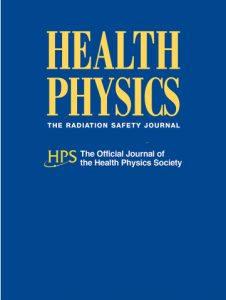The MotherToBaby podcast “Radiation and Its Effect on Pregnancy” — an interview with ATE Editor in Chief Emily Caffrey — is available as a
podcast and as a
video.
Pregnancy
Can I continue flying (domestic as well as international flights) while I am pregnant?
Yes, you can continue flying while pregnant. The low radiation exposure received while flying on a commercial airline will not harm your developing fetus.
I have read some things telling me that flying while pregnant is okay and some other things that say I should worry about an increased risk of cancer for my children if I do fly while I’m pregnant. Can you clarify this?
First, let me mention that the background risks for birth defects are 3% and for miscarriage are 15%; this is the normal incidence. The most important factor with regard to radiation risks is the dose. Fortunately, when you are flying in a jet at 30,000 feet altitude, the exposure is extremely small and for only a short period of time. Based on our knowledge of the amount of radiation to result in birth defects or miscarriage, there is no risk from commercial flying.
Consultants differ in their statements on the risk of childhood cancer because there is a theoretical risk for cancer from any exposure of radiation (ionizing). But when the dose is as low as it is when you are flying, the theoretical risk is dwarfed by the spontaneous risk of cancer. So you could say the cancer risk from flying is very, very, very, very small, or you could say it should be of no concern because the dose is so low.
Is it okay to fly on small planes while pregnant?
Regarding radiation exposure, your exposure would be lower when flying in a small plane than while flying in a large plane because the small plane will fly at a lower altitude. The radiation exposure in both the small and the larger planes is too low to increase your risk for birth defects or miscarriage.
Should I wear a lead apron while I am pregnant and flying in an airplane?
Using a lead apron while flying is unnecessary because (1) there is very little extra radiation exposure as a result of flying and (2) someÃÂÃÂ types of radiation that may cause exposure while in flight would not be stopped by a lead apron.
Are there any weeks of pregnancy that are safer than the others when flying on a commercial airplane?
The exposure to radiation during a commercial flight is very low and is below the dose that could potentially harm the embryo or fetus at all stages of gestation. Therefore, when you fly, stage of gestation is irrelevant from a radiation standpoint.
Quite a few of my flight-attendant colleagues have had miscarriages, some more than once. Is there a connection with the job, exposure to radiation, pressurized cabin, and low oxygen levels?
Spontaneous abortions are a very common problem regardless of occupation. In the first month of pregnancy, about half of the fertilized eggs do not survive, most because of lethal chromosome abnormalities. Once a woman misses her period and knows she is pregnant, 15% of the embryos miscarry. There are about 24 known medical problems that are responsible for pregnancy losses. Smoking and drinking increase the risk, as do thyroid disease and diabetes.
The radiation exposures in flight are too low to contribute to the risk of abortion, and the oxygen levels in a pressurized cabin are more than adequate for the mother and fetus. Stress may be a factor, but it will vary with the individual. Studies have been performed in female flight attendants, but the number who are pregnant and continue to work is small, and they have not indicated an increase in spontaneous abortions.
I am a few weeks pregnant and have taken two transcontinental flights and will be taking two more soon. Is this too much radiation exposure?
While it is true that your exposure to background radiation increases at higher altitudes, the exposure that you have received and will receive will not increase your risks for birth defects or miscarriage.
I am planning a round-trip flight from Washington, DC, to Chicago. I have a particular concern about my exposure to radiation because there are solar flares predicted for that week and I will be in my ninth week of pregnancy during my flights. What are the additional risks of radiation we might be exposed to if our flights occur during solar flares and the implications that it could have on my developing baby?
The radiation exposures while flying are not considered high exposures. During your pregnancy, you and your fetus will receive about 2.3 mSv of background radiation, which of course none of us can avoid. In a 10-hour flight you would receive around 0.05 mSv. During solar-flare periods the exposure may be increased. Some measurements have estimated exposures of 100 times the usual exposure while flying, which would bring your exposure in the range of a low-level exposure from many diagnostic radiological procedures. Even this exposure would not increase your risk for birth defects or miscarriage, which is 3% for birth defects and 15% for miscarriage for all healthy women when they begin their pregnancy.
Many questions refer to commercial flightsâÂÂwhat about flying in a Learjet that flies at higher altitudes?
Radiation exposure during the Learjet ride will not increase your risk of miscarriage. According to a recent paper, the radiation exposure received by passengers during a Concorde flight is about 0.01 mSv (mSv is a unit of radiation dose) per hour (Bottollier-Depois JF, Chau Q, Bouisset P, Kerlau G, Plawinski L, Lebaron-Jacobs L. Assessing exposure to cosmic radiation during long-haul flights. Radiat Res. 153[5 Pt. 1]: 526âÂÂÃÂ532; 2000). This is a good reference since the Concorde flies at approximately 55,000 feet and a Learjet may be between 40,000 and 50,000 feet. Put in perspective, that is about one day of normal background radiation (radiation exposure we receive every day from naturally occurring radiation sources). The dose that is allowed by the Nuclear Regulatory Commission for a pregnant woman who is occupationally exposed to radiation is 5 mSv.
Effect on Conception
I fly quite a bit because of my work. My husband and I are trying to conceive and I wonder whether my flying will affect my chances.
There is no reason for concern regarding a possible effect on fertility of radiation from a few airplane flights. Because there is a threshold dose for radiation effects on fertility, when we are below the threshold, the risk becomes clinically insignificant. It would take several hundred thousand commercial flights to reach the threshold dose. That would be about two flights per day for about 700 years.
What is the effect of radiation during commercial flights on sperm and the ability to conceive?
The amount of radiation exposure received during commercial flights is too low to affect sperm.
I am a flight crew member and consistently nursed my child even after long flights. Is it or has it been safe for me to nurse?
There are no known adverse effects or risks of such low doses of radiation (like those you received while flying) on nursing a baby.
The information posted on this web page is intended as general reference information only. Specific facts and circumstances may affect the applicability of concepts, materials, and information described herein. The information provided is not a substitute for professional advice and should not be relied upon in the absence of such professional advice. To the best of our knowledge, answers are correct at the time they are posted. Be advised that over time, requirements could change, new data could be made available, and Internet links could change, affecting the correctness of the answers. Answers are the professional opinions of the expert responding to each question; they do not necessarily represent the position of the Health Physics Society.






